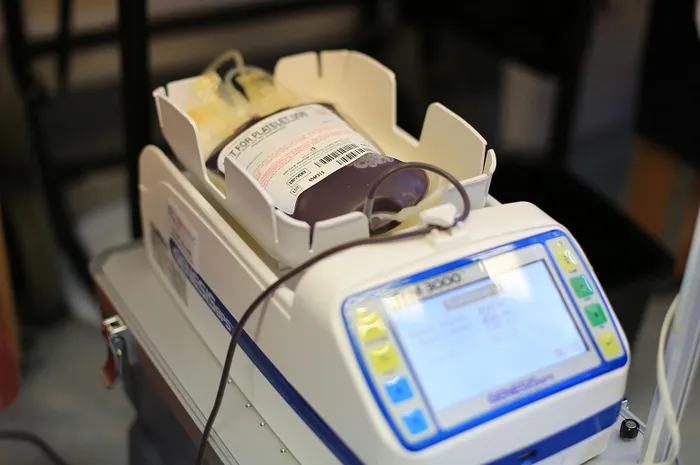The other 364 days: A story of hope, health and corporate heart

Many patients around South Africa are battling serious illnesses like blood cancer. If you register as a stem cell donor, you can be saving the life of someone in need.
Image: Danie van der Lith / DFA
EVERY year, on July 18, South Africans roll up their sleeves for Mandela Day. Offices empty out as teams head off to paint classrooms, pack food parcels, and spend their 67 minutes giving back. There are smiles, selfies, and that warm feeling of doing something good.
But the next day, July 19, everything goes back to normal. The paint dries, the photos are posted, and for many companies, the moment passes.
That’s the problem, says Palesa Mokomele from DKMS Africa. “We love Mandela Day. It brings people together and reminds us of our shared humanity. But real change takes more than one day.”
Palesa has a point. She works with patients who are battling serious illnesses like blood cancer. For them, hope doesn’t come in a care package or a short visit. It comes in the form of a stem cell donor, someone who might be the match that saves their life.
A Matter of Life and Numbers
Here’s something most people don’t know: if you’re white and diagnosed with a life-threatening blood disorder, there’s a 75% chance you’ll find a matching stem cell donor. If you’re black, coloured, Indian, or Asian? That chance drops to just 19%.
It’s not because people don’t want to help. It’s because South Africa’s donor registry doesn’t reflect the country’s true diversity.
“That’s not a medical issue,” says Palesa. “It’s a numbers issue. It’s an equity issue.”
Companies Stepping Up
The good news? Some companies are already helping to change the story.
AfroCentric Wellness is one of them. Instead of waiting for Mandela Day, they’ve made helping people part of their everyday work. In their clinics, patients can now register as potential stem cell donors. Nurses are trained to guide them through a simple swab test that could one day save someone’s life.
And they’ve taken it further. Inside AfroCentric, Sanlam, Santam, and MiWay offices, staff are joining drives to sign up as donors. Posters, videos, and team talks are helping people understand what stem cell donation really means, and break down the fears and myths that stop them from signing up.
Lesley-Anne Cagni, a wellness manager at AfroCentric, knows what it means on a personal level.
“When I registered as a stem cell donor, I didn’t realise how much it would mean to patients and their families,” she says. “It’s not just about one person. It’s about giving hope to everyone walking that difficult road with them.”
More Than Just One Day
South African companies spent R12.7 billion on social causes last year. That’s a powerful number. But it’s not just about the money. As Palesa points out, businesses have something even more valuable: people, buildings, networks, and influence.
“These are tools that can solve real problems, like the shortage of stem cell donors,” she says.
But it can’t happen in 67 minutes. It takes time, planning, and most importantly, commitment.
That’s why Palesa is challenging businesses to think bigger. Not just about Mandela Day, but about the 364 days that follow.
“What if every company looked at its staff, its customers, its spaces, and asked: how can we make a difference all year long?”
Because for the patients still waiting for a stem cell match, next year might be too late.
The Real Challenge
So here’s the real Mandela Day challenge: not what your company will do for 67 minutes, but what it will do with the rest of the year.
The chance to save lives is here. The infrastructure exists. The need is urgent. What’s missing?
Just one thing: action.
Now, when the 18th of July fades into memory, the question for every business in South Africa becomes clear:
What will you do on July 19?
Related Topics: